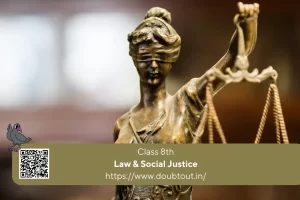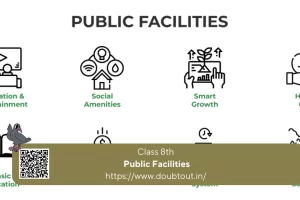
NCERT Solutions For Class 8 History Chapter 1 How, When and Where(updated pattern)

Being a mass media, newspapers provide more backdrop, context and elaborate descriptions. However, the relative merits and accuracy of a piece of information from any source can only be determined after proper research and investigation. To get a balanced and clearer picture of a period in history, historians often go through as many sources as possible, while keeping in mind the biases and interests that could be behind them.
1. State whether true or false:
(a) James Mill divided Indian history into three periods – Hindu, Muslim, and Christian.
(b) Official documents help us understand what the country’s people think.
(c) The British thought surveys were important for effective administration.
Answer.
(a) False
(b) False
(c) True
2. What is the problem with the periodisation of Indian history that James Mill offers?
Answer.
The problem with the periodisation of Indian History that James Mill offers is the superiority of the British over Hindus and Muslims. James Mill has divided Indian History into three periods – Hindu, Muslim and British, claiming that it was necessary to introduce European manners, arts, institutions and laws in India.
James Mill’s views have several defects given below:
a. He thought that all Asian societies were at a lower level of civilisation when compared to Europe.
b. According to his telling of history, Hindu and Muslim despots ruled the country before the British came to India.
c. Religious intolerance, caste taboos and superstitious practices dominated social life before the British came to India
3. Why did the British preserve official documents?
Answer.
The British preserved official documents because they thought it would be easier for them to study and debate if they wrote and recorded everything. They kept official records of what they thought was right so that in the future, those records could serve as proof of all the decisions that they had taken.
4. How will the information historians get from old newspapers be different from that found in police reports?
Answer.
The information printed in newspapers is usually affected by the views and opinions of the reporters, news editors etc. But what historians find in police reports is usually true and realistic.
NCERT Solutions for Class 8 Science Chapter 3 Coal and Petroleum(updated Pattern)
5. Can you think of examples of surveys in your world today? Think about how toy companies get information about what young people enjoy playing with or how the government finds out about the number of young people in school. What can a historian derive from such surveys?
Answer. Surveys are done by government and private companies.
- on demographic changes, employment, incomes, tastes, interests, possessions, etc.
- Manually or with the use of technology.
- At different places like homes, schools, institutions, malls, etc.
Historians may get information about preferences, lifestyle, demographic changes, political, social, economic life, etc.
Tag:Class 8th, History, Social Science






